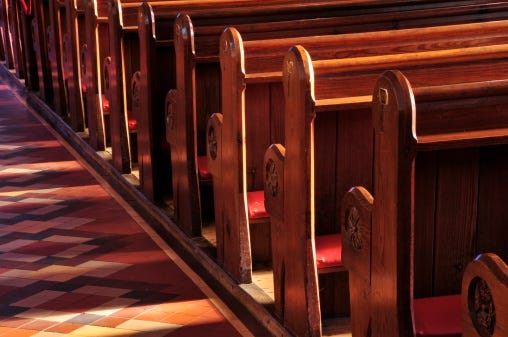
Buffalo, N.Y. (WBEN) - "I'm a daily parishioner. I see empty pews. I read the bulletin and see that donations are down. I'm not surprised," said parishioner Michael Taheri, who joined WBEN on Wednesday.
Facing problems such as declining attendance, fewer weddings, fewer baptisms, and increasing numbers of funerals, the Buffalo Diocese is making plans to downsize, with 54 parishes and over 70 churches projected to close.
Taheri said he has not seen enough data yet to say that he supports the Diocese on the issue.
"I don't like language such as right sizing. That's what I expect to see on a McDonalds ad. This is going to be done with prayer and I trust that God is going to bring us through this."
Taheri thinks the path forward will include a more active role for laity. "The laity has to increase its role and the Bishop has to accept and embrace that."
He pointed out what he thought was a major omission from the announcement.
"Spiritually, what does this bishop have to do to get people to return to the faith? There was no plan articulated on that."
Taheri had written a letter to the Pope Francis in April calling for the ouster of Bishop Michael Fisher. He told WBEN on Wednesday that he was happy to see that the Bishop was at the forefront on the crisis.
Fr. Bryan Zielenieski, leads the Diocese's Road to Renewal effort, and admits the numbers are stark. But in an interview with WBEN, he said after the pandemic, things never returned to what they considered to be normal.
"The trends are alarming," noted the Diocesan Vicar. "We have to do something and acknowledging it is the first step."
Regarding the spiritual aspect, and how the church plans to bring back the faithful, Zielenieski stressed that remains the focus.
"We've said that evangelization has to be a key component. Bishops have called for a focus on the Eucharist over the past three years. Our diocese has participated in that and we are actively working to respond to this."
Demographics and attendance trends will be considered for closures, but also the number of sacraments administered, geography, finances and other factors.
"I think there will be some surprises in the recommendations, because we have to look at the reality of the limited number of priests we have. There will be some hard decisions," added Zielenieski.


